| MAIN | | | JAN 2013 | | | FEB 2013 | | | MAR 2013 | | | APR 2013 | | | MAY 2013 | | | JUN/JUL 2013 | | | AUG 2013 | | | SEP 2013 | | | OCT 2013 | | | NOV 2013 | | | DEC 2013 | | | HOME |

|

|
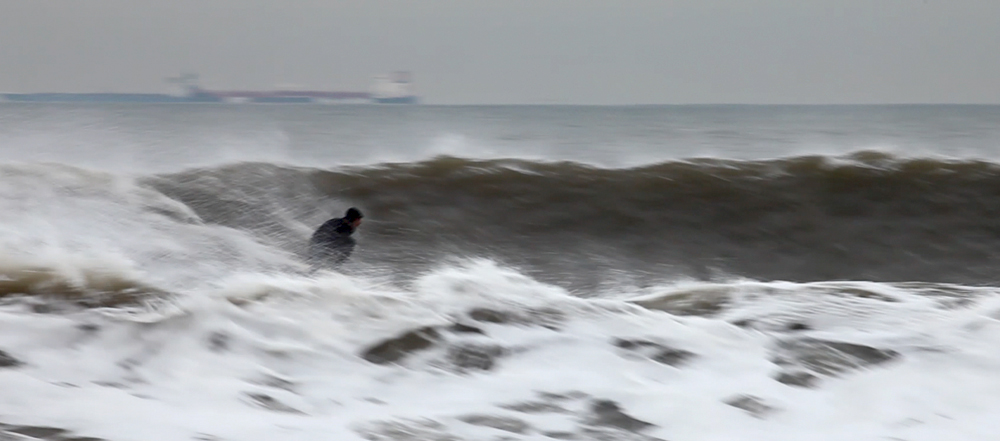
|

|

|

|

|
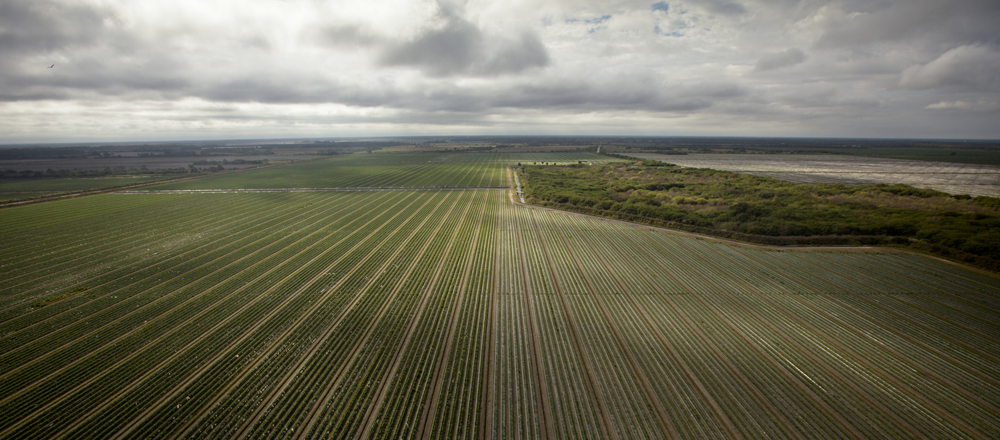
|
| Photo: Forest Woodward 2013 |

|

|
|
Over the past decade (and more….;) you have ambitiously created and spearheaded work(s) that addresses diverse social issues, expertly approaches a wild range of thematic
areas, and in my humble opinion, an outstanding ability to bring many different communities together in deeply engaging ways – What is the thread tying this together?
Carol Ann! You’re very kind!! I’ve had the opportunity to work on development-related issues for more than a decade, often overseas. These initiatives spanned healthcare, education, peace-building and film. From the beginning, I was encouraged by my teacher, Sri Chinmoy, to work on projects with, as he put it, “rising stars” – people full of inspiration and dynamism. From working with these types of people, which included actors, musicians, athletes and community leaders, I learned that the key to making any impact on people’s lives is heartfelt service – to approach issues with oneness with those involved and affected. Often, Sri Chinmoy’s approach focused on individuals and raising their standard. His philosophy and mine, resultantly, is that changing the world, so to speak, can only happen one person at a time. That is, it’s is by individuals making progress that the world will do so.
As founder and lead of the strategic advisory firm Illumine which supports and strengthens the delivery of vital humanitarian and social investments for an array of initiatives, individuals, and organizations – What philosophies, principles, and values guide your work? I try my best to work on projects that will make me a better person. Unless I’m happy and enthusiastic, it’s hard to work on projects that could have deep impacts on those involved. I try very hard to select projects that, number one, I have the capacity to execute, and, number two, those projects that I feel will help me grow personally. |


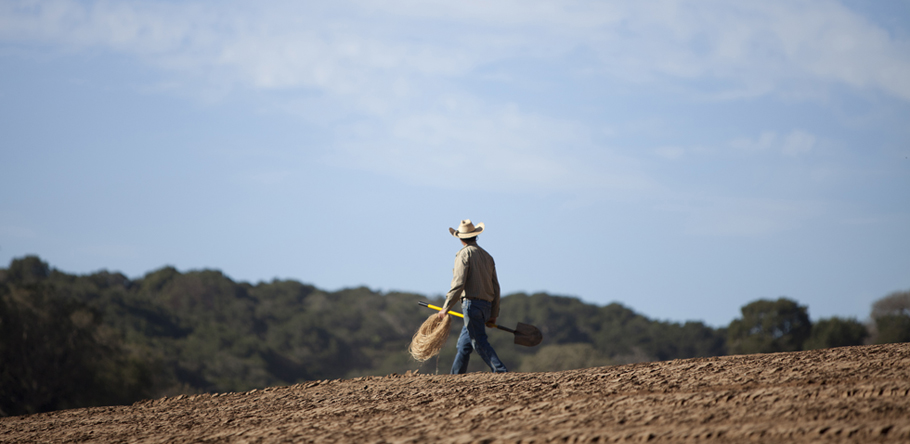
| Photo: Forest Woodward 2013 |


|
You have traveled and worked in over 40 countries, meeting and advising with global leaders, living and exchanging with local communities - How have these experience
shaped your perspective of global happenings, local narratives and community viability?
The world is a very small place, and I’m not talking in digital terms. People really want the same things in life. And actually, people in developing nations want less! I’ve seen how desperately communities fight not just for development, but more importantly, to preserve their simplicity, their culture and their spirituality. Development is always at odds with cultural preservation it seems. These forces are not just external. Often, community members, particularly the youth, will want advancement above all. And while it is a human right to have access to tools to prevent disease, to advance education and to increase people’s standards of living, I think more care needs to be taken to adapt these solutions culture-by-culture. There are certain traits in every culture that desperately need modernizing (like girls’ access to education, for example), but there is also wisdom that needs safeguarding. And our Western models seem to disregard the latter to some degree. I love projects that build capacity within communities so that they, themselves, can be the problem solvers and have access to resources with which to solve those problems. |
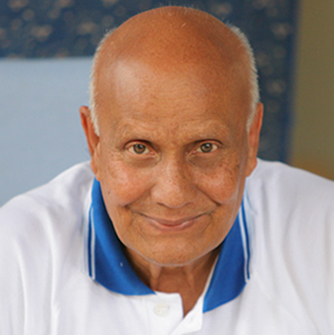
|
In the past few years you released two award-winning short films, ‘Ocean Monk’ followed by ‘Challenging Impossibility’ which shares Sri Chinmoy’s 'faith in our innermost
capacities' – How has his teachings facilitated your own capacities?
I consider myself fortunate beyond belief. So many people have been incredible mentors to me. Sri Chinmoy, however, played a much deeper role in my life and continues to do so. I moved to New York in 1997 essentially to live closer to him (in Queens). I abandoned graduate school and all worldly ambitions to essentially allow myself to be moulded and shaped by him. How successful he was, God only knows. Unfortunately his ability to be of service to my heart and soul depended on by receptivity to it! And it’s hard to surrender one’s ego, no matter how much I tried. Anyhow, he opened my heart and showed me how to use that faculty to approach life, rather than my mind. He taught me to feel rather than to think. And it’s this approach that allows me to generally be happy, enthusiastic and inspired no matter what life throws my way.
I was so inspired by his philosophy, in particular his teachings on self-transcendence –
|
|
You are also an avid surfer (in warm and freezing cold waters), an accomplished marathon runner (and snow-shoer), a yogi and practice mediation daily –
how does this enable you to more effectively, more deeply, achieve and attune to your vision?
In Hinduism, we use the word “yogi” to denote a master of meditation, which I’m not, rather than just a practitioner of physical yoga. So as a nod to my heritage I must make that differentiation! That said, I’ve played sports avidly since I was a young child. When I met Sri Chinmoy, I was amazed and excited that he viewed sports as an integral part of the spiritual life. I focus more on running than anything else, but I do try to mix things up to stay motivated – ie snow shoeing in the winter, surfing all year round. Physical fitness makes me feel like I’m still 18 and that youthful outlook to life helps me maintain my enthusiasm and cheerfulness, qualities that make everything else go more smoothly. Having had the opportunity to work with you on community-devised and community-driven solutions, I have witnessed your dedication to nourish global solutions by integrating local narratives – How is this a factor motivating your approach in the making of ‘Food Chains’? Carol Ann, first of all, you’re one of the most inspiring people I’ve ever worked with and it was an honor to work on water issues in Kenya and Mali and energy issues in Cameroon with you! I’ve always seen food as such a personal thing. We make choices based on what we feel like eating. As “Selfish” as food consumption is, I think we realize that our choices can influence markets and create trends. Sri Chinmoy helped me to feel gratitude within my heart. Moreover he instructed his students to take a moment before eating to meditate and feel grateful for the nourishment. After I saw how farmworkers were being treated, I realized that my moments of mealtime gratitude weren’t extending to them – that I was wholly unaware of their incredible contribution to the food I ate. I felt ashamed and emboldened to do something about it, personally, and for others who might be as unaware as I was. Food Chains was born from this sense of emptiness and disregard. |
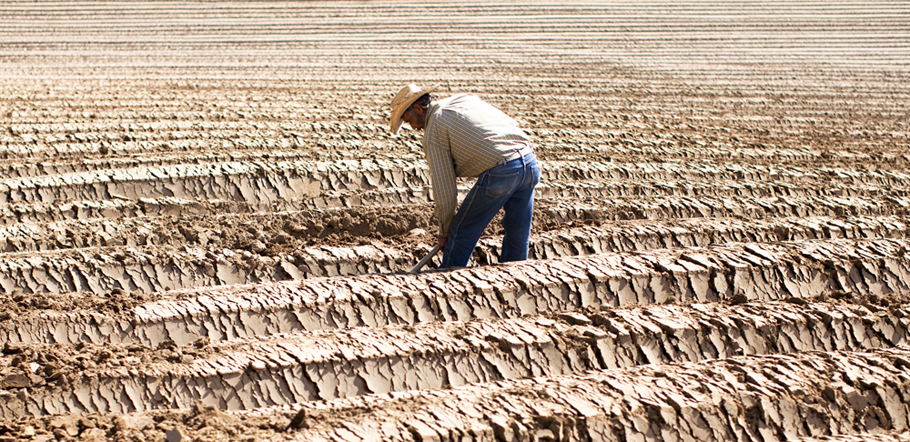
| Photo: Forest Woodward 2013 |



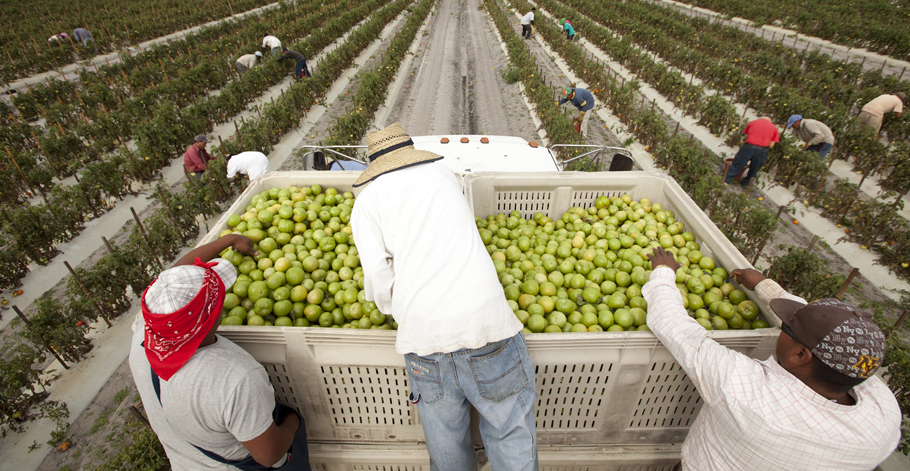
| Photo: Forest Woodward 2013 |
|
Farmworkers are amongst the most abused workers in this country, while being amongst its most essential.
Food Chains aims to shine a light on the horrific exploitation of workers, from wage theft to modern day slavery, and to connect us as consumers to these abuses thru every
bite we eat. Fortunately, the film offers a solution – the Fair Food Program of the CIW (www.ciw-online.org) which has revolutionized purchasing practices of 11 multibillion
dollar retailers and one, if adopted by supermarket giants, has the ability to end global exploitation of farm laborers for good.
How did you first become interested in agriculture and agricultural practices? My dad is a tomato breeder and a pretty good one at that. I spent most summers of my childhood going with him to farms in California’s central valley. I grew up around agriculture though it wasn’t until I was in my late twenties that I asked to help my dad in his business so that I could learn more. So much media attention is focused on tech innovations, finance, consumer products – but the backbone of our country is agriculture and so many of us how such a tenuous understanding of what it really takes to bring food to table. What have you found most challenging in the making of ‘Food Chains’ – How have such challenges led to opportunity? The topic of farm labor, I’ve found, is incredibly complicated. People involved in agriculture have their own version of “Don’t ask don’t tell.” People aren’t aware of the level of abuses in the industry because they purposely keep their blinders on. Farm worker management is relegated to labor contractors, who are responsible for hiring, paying wages and even arranging transportation and living quarters. They are a Chinese Wall, so to speak, of deniability between the industry and workers. Just trying to find information and getting access to contractors was incredibly difficult. But this lack of accessibility was mirrored throughout the industry. It was incredibly difficult getting people in the industry to talk on camera. Workers were open, but not industry types. In fact, the ag-gag rules that are being discussed on a state by state basis make it a felony to take photos of agricultural businesses, even from public roads. Sri Chinmoy taught people to never give up. Boy, am I learning the value of that tenet! I could’ve and should’ve given up on this topic long ago, such was the difficulty. |
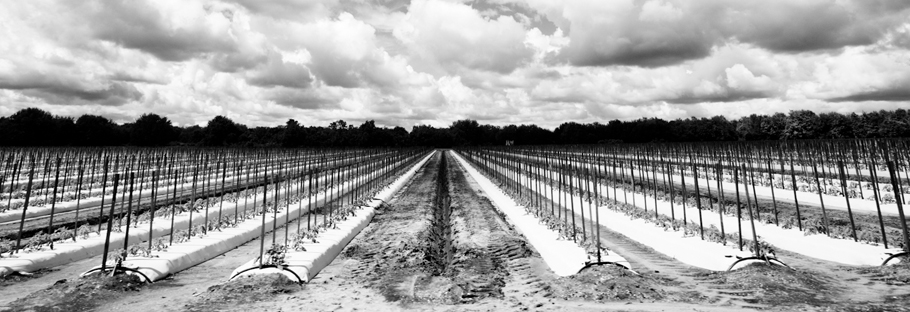
| Photo: Forest Woodward 2013 |


|
When you dream – what is the experience, where do your thoughts, your heart, gravitate?
Great question! My dreams are very peaceful. I never have nightmares or frightening experiences. I can thank my meditation practice for that. While dreams at nighttime can offer a certain level of insight either into our subconscious or into spiritual realms, I place deep significance in things as seemingly trivial as daydreams. I find that the act of dreaming is a window into a world of imagination. And imagination itself can be a harbinger of reality. This visualization of what I want to do and where I want to be really helps me stay happy. I like to imagine feelings of transcendence, of going beyond my capacities, of achieving a temporary goal. That visualization, I feel, helps that dream become a reality sooner, whether it’s a certain time-achievement running, a certain professional goal being met, or a certain level of consciousness being attained. Do you feel as though you have tapped into a purpose, a passion, a calling – your life’s work? I don’t know if I’ve found my calling. That said, I do feel like I have tapped into something. My work constantly changes, from development to agriculture to film. I really like to go with the flow, so to speak, and I find that when I keep myself spontaneous and childlike and youthful, I’m able to feel what the correct path for my present state of development is. I think that I am doing my life’s work right now, but I know that will most likely change in a year! THANKS SO SO MUCH CAROL ANN! |

|

|

|

|
|
| MAIN | | | JAN 2013 | | | FEB 2013 | | | MAR 2013 | | | APR 2013 | | | MAY 2013 | | | JUN/JUL 2013 | | | AUG 2013 | | | SEP 2013 | | | OCT 2013 | | | NOV 2013 | | | DEC 2013 | | | HOME |
